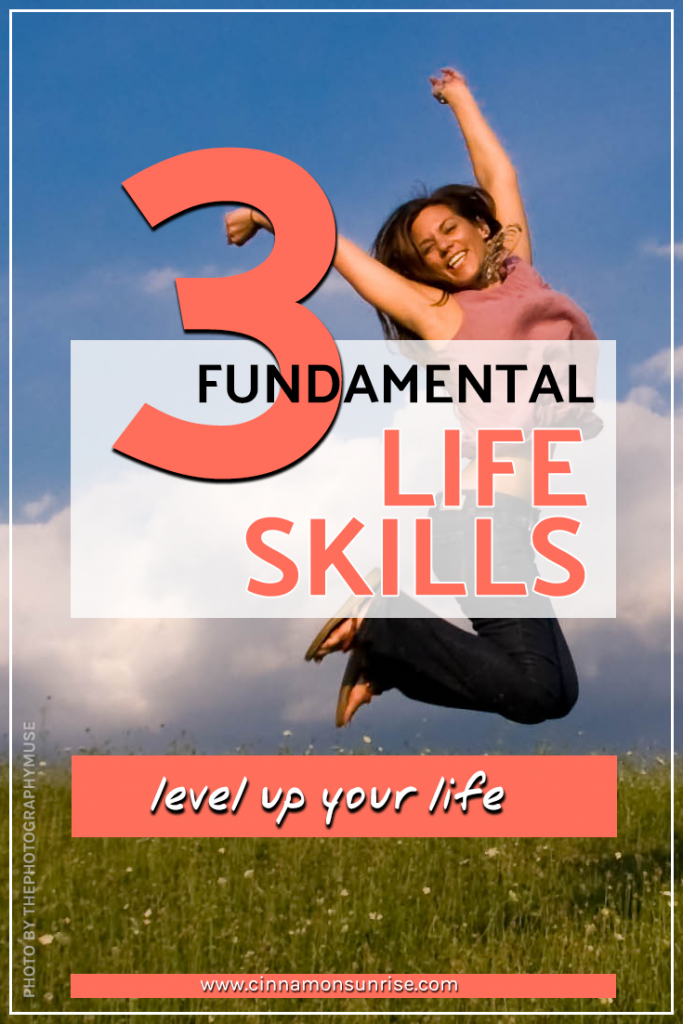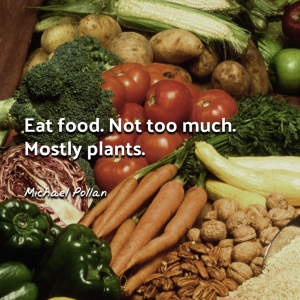This post may contain affiliate links. If you click on an affiliate link and buy something, I get a percentage of the sale. Find out more by reading my affiliate policy and disclosure.
What are the fundamental life skills that everyone should know?
As a teenager I used to devour self-help books. I absorbed every tip and trick going. I knew about the Pomodoro technique, I knew about wearing your gym clothes to bed, and I knew about compound interest back when I was getting £1 a week pocket money.
Tips and tricks are good! But over time I have come to see that getting a grasp on what I believe are the three fundamental life skills is more effective.
These fundamental skills are true regardless of your situation. If you focus on improving your life in just these three areas, you will reap benefits. You’ll be calmer, happier, more productive, more energetic, more focused.
The Three Fundamental Life Skills
Life skill 1: Know how to get a good nights sleep
We don’t understand how sleep works. We do know that everything from cognitive decline to obesity to heart disease is linked to sleep deprivation. Getting enough sleep will help you learn and remember things better. Memory consolidation takes place during sleep, making it essential for people in school. Or indeed, anyone who wants a better memory!
Getting a good nights sleep is not rocket science, but it does need you to have in place good routines and habits.
In brief, to improve your sleep you should:
- Go to bed and get up at the same time every day
- Avoid drinking caffeine after noon (I started tracking my sleep and my caffeine and was amazed at how directly linked they were. Drinking caffeine in the afternoon meant having a bad nights sleep. And yet somehow I had never noticed the link before!)
- Avoid alcohol.
- Avoid exposure to light in the evenings by switching off electronics. You can also use a program like f.lux on your computer and phone to limit blue light.
- Establish an evening ‘wind down’ routine
- Use your bed only for sleeping! (Oh, okay, there is one other thing you can do in bed…)
- If you can’t sleep, get back up. You don’t want to associate your bed with tossing and turning and fretful nights.
Yes, some of these things may not fit with your idea of a good life. Give up alcohol? Stop drinking coffee? Sounds crazy, right?
What worked for me was spending 30 days practicing excellent sleep hygiene. I followed all the tips above and I worked on changing my attitude to sleep. My sleep quality improved a huge amount in those 30 days. Then, I became more flexible. If I wanted a nice coffee after dinner, I would go for it – knowing that the consequence would be a disrupted night. I’m in control of my sleep, instead of struggling with insomnia.
If you have tried all the advice on sleep hygiene and are still struggling with tiredness, you might have an underlying illness. Look into getting checked out for sleep apnea. Sleep apnea is a common problem that can prevent you from sleeping well.
Improve your sleep. Discover how I fixed my sleep issues for once and for all.
Life Skill 2: Eating a nutritionally sound diet
A balanced diet is essential for both physical and mental wellbeing. Unfortunately, there is a lot of disagreement about the ‘perfect’ diet. We don’t know what exactly all those vitamins and minerals are doing for us. Arguments about low-fat versus high fat versus low carb versus all protein rage across the internet. It can be hard to know what the right choices are.
But pretty much all nutritionists agree that a eating a variety of fruit and vegetables, accompanied by enough healthy protein, essential fats and high quality fibre is key.
Improving my life by changing the way I ate
I have managed to resolve two issues in my life by changing the way I eat. Firstly, I had ongoing exhaustion and fatigue as a result of border-line anaemia. (Anaemia is common in people who menstruate). I increased the amount of iron I ate. I started by taking a supplement, but later I started using the Iron Fish.
Secondly, I struggled with depression, which I had to tackle from a variety of angles. Food affects mood in complex ways that we don’t fully understand. There are no ‘magic bullets’ and a specific vitamin or mineral is not going to cure everything that ails you. But by working to ensure we get all the macro and micro nutrients our bodies depend on, we can build a foundation for good mental health.
I’ve written an extensive post about how to improve your depression through diet.
For me, taking an omega-3 supplement and increasing the amount of oily fish I ate seemed to have a positive effect on my outlook.
Society makes it harder to eat well, by inundating us with conflicting messages. Many of us may struggle with disordered eating patterns. It can be difficult to make good choices when we work long hours, travel a lot, or don’t have much money. And, whilst good nutrition benefits everyone, what that looks like for you may be deeply personal and unique.
I’ll be writing a lot about this topic a lot over the next few months, so stick around and I will offer tips on getting a handle on healthy eating.
Meanwhile, Micheal Pollen’s book In Defense of Food: An Eater’s Manifesto* remains one of the most common sense approaches to figuring out how to eat well.
Life Skill 3: Move around more (and sit less)
Exercise is good for you! (Who knew?!) Aside from all the physical benefits, it’s also an instant mood booster.
There is also evidence that remaining sedentary for long periods of time can lead to all kinds of health problems – even if you workout.
I’m not going to tell you about the ultimate exercise regime that will banish love-handles and give you six pack abs in just five minutes a day.
I am going to tell you that getting up and moving about every hour is going to help prevent heart disease, cancer, and diabetes. It will keep your brain active and alert through the day. Avoid the mid-afternoon slump! Reduce sugar and caffeine cravings! Become more productive! All it takes is moving around.
How do you build movement into your day?
I love my Fitbit for it’s reminders to move every hour. You could also try an app like Move. Or set an alarm on your phone to go off every hour and prompt you to take a stroll or do some stretches.
Office or desk based workers could look at getting a standing desk*.
Look at ways to build movement into your routine. I know we’ve all heard the suggestions. Walk or cycle to work. Take the stairs. Use ad breaks to get up and move about. Have walking meetings. Stand up when you are on the phone. Stretch more. Pick the ones that apply to you and start setting the habits.
Discover some great fitness programs that are easy to do at home.
Make it work for you!
I’m not an expert on your life. I don’t know what’s keeping you up at night. I don’t know what your diet is like. And I definitely don’t know how easy it is for you to move around. But I do know that even small improvements in these three areas will pay off dividends. It’s worth spending some time paying attention to these areas with an open mind. If you do make improvements, track the impact on your life.
I would also love to hear from you – have you found a way to master these fundamental life skills? What have you done to help you sleep better or move more? What do you struggle with? Where are the barriers?
Join the Weekly Challenge!
What if, every week, you got a challenge to do one thing? Just one thing that would have a lasting positive impact on your life.
That’s what you’ll get if you join my free weekly email challenge.
Pin this post about the ‘three fundamental life skills’!



